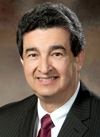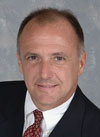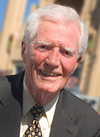 Terms such as “business development” and “return on investment” increasingly are becoming part of the lawyer’s vocabulary. Cybersecurity is emerging as a critical issue in law firms. And intellectual property law is a “red hot” practice area, while elder law and immigration law are getting hot, or will soon, in our changing society.
Terms such as “business development” and “return on investment” increasingly are becoming part of the lawyer’s vocabulary. Cybersecurity is emerging as a critical issue in law firms. And intellectual property law is a “red hot” practice area, while elder law and immigration law are getting hot, or will soon, in our changing society.
Those are just a few of the findings presented in the latest edition of “What’s Hot and What’s Not in the Legal Profession,” prepared by Robert Denney Associates, a management, marketing, and strategic planning consulting firm in Wayne, Pa.
It’s the 26th annual report from Denney and his team. As in previous years, they base their findings on information compiled from multiple sources: the company’s own clients, additional law firms, general counsel, and other leaders in the legal profession.
We asked a few attorneys and others in the field to provide their perspectives on some of the trends and issues cited in the report and how these are playing out in Wisconsin. You’ll find the full report on page 18 of this issue.
Practice Areas to Watch
While Denney’s report designates varying degrees of “hot” practice areas, he emphasizes he’s not suggesting firms ought to pursue them. “This isn’t to say that every firm should be involved in these,” Denney says. “But if you are, then beef up your efforts in those areas, or perhaps phase down others.”
Intellectual Property Law
This ranks on Denney’s list as a “red hot” practice area, and that’s true in Wisconsin, as well. Elisabeth Townsend Bridge, an attorney with Whyte Hirschboeck Dudek S.C., Milwaukee, reports a strong uptick in international filings for trademarks, among her business clients of all sizes, especially since revised laws have made such filings easier and less costly.
 There is a strong uptick in international filings for trademarks, since revised laws have made such filings easier and less costly.
There is a strong uptick in international filings for trademarks, since revised laws have made such filings easier and less costly.
Elisabeth Townsend Bridge, Whyte Hirschboeck Dudek S.C., Milwaukee
Filings for nontraditional trademarks also are on the rise. Among these are “three-dimensional trademarks and trademarks for sounds that make people think of a particular company,” Bridge explains. The roar of a Harley Davidson motorcycle is an example.
Changes in patent law in recent years continue to yield heightened activity. Because of the shift to a first-to-file, rather than first-to-invent, system, “We see an increasing number of patent filings,” Bridge says, “and people are getting to it sooner.”
But new complexities also have surfaced. Certain court decisions have left software patents “in a state of flux,” Bridge says. “It’s unclear where we’re going with the protection of software.”
Denney’s report points to the continuing mischief of patent trolls, which have included Wisconsin companies among their targets, according to Bridge. These entities develop no technology themselves but have a portfolio of patents they go around enforcing. They threaten companies with patent infringement lawsuits or, to avoid being sued, companies pay hefty licensing fees. Denney expects Congress to enact patent reform in 2015 to deal with the problem.
Labor and Employment Law
Wisconsin has seen substantial increases in federal wage-and-hour claims in recent years, says attorney Larry Johnson of Hawks Quindel S.C., Milwaukee. New developments “will increase what is already a very hot area of litigation,” he says.
 Wisconsin has seen substantial increases in federal wage-and-hour claims. New developments will increase what is already a very hot area of litigation.
Wisconsin has seen substantial increases in federal wage-and-hour claims. New developments will increase what is already a very hot area of litigation.
Larry Johnson, Hawks Quindel S.C., Milwaukee
One such development is President Obama’s executive order, effective October 2014, raising the minimum wage federal contractors must pay. Another executive order calls on the Department of Labor to modernize and streamline the white-collar exemptions to the Fair Labor Standards Act. Proposed rules are expected in February 2015.
White-collar exemptions have a job-duty test and a salary-basis test, which probably will rise significantly from the current $455 per week. The results could be two-fold.
“Some employers aren’t going to change their policies and will be caught off guard by this,” Johnson says. “So we’ll see an increase in claims by employees who were exempt but are no longer, and now they’re entitled to overtime.”
Another possible outcome, he adds, is that employers do make policy changes. And they may decide to shift an employee from salary-basis to hourly pay. The employee, however, continues to do the same job, with the same workload and pressures to produce.
Salaried employees are used to working through lunch, on weekends – whatever it takes to get a job done. With the shift to hourly, “They’ll need to record that extra time to get paid for it,” Johnson explains. “There will be a lot more off-the-clock claims as a result.”
Environmental Law
Numerous matters are keeping Wisconsin’s environmental lawyers busy. One of the major ones crossing Jodi Arndt’s desk is frac sand mining. “That involves a lot of local land-use issues, on top of just the environmental issues associated with frac sand mining,” says Arndt, an attorney with Conway, Olejniczak & Jerry S.C., Green Bay.
 One of the major environmental areas is frac sand mining, which involves a lot of local land-use issues, on top of just the environmental issues associated with it.
One of the major environmental areas is frac sand mining, which involves a lot of local land-use issues, on top of just the environmental issues associated with it.
Jodi Arndt, Conway, Olejniczak & Jerry S.C., Green Bay
Another active environmental area is water, in terms of both quality and quantity. “In a heavy agricultural state,” Arndt says, “water is an ongoing issue that seems to be on the top of everyone’s mind.”
Legal matters related to water quality involve conflicts over manure management and other farm runoff. Phosphorus loading into water bodies is a concern for the state’s many dairy plants.
As for legal dilemmas surrounding water quantity, some of these pertain to high-capacity wells across the state. “Large farming operations require a lot of water,” Arndt explains. “So they install high-capacity wells that tend to draw down their neighbors’ wells.”
Frac sand mining also requires heavy water use. As mining operators apply for numerous high-capacity well permits, disputes arise over water rights.
In this scenario of conflicting needs, the challenge “is to make sure everybody has water,” Arndt says, “so we’re not having water wars over who is entitled to it.”
Health Care Law
Lawyers familiar with the health care industry’s rules and regulations “have their work cut out for them,” says Barbara Zabawa, an attorney who runs the Center for Health Law Equity LLC, in McFarland. She agrees with Denney’s assessment that health care law is a “hot” practice area.
 Data breaches are an enormous problem in the health care industry. Health entities of all sizes can be vulnerable to breaches, internal or external.
Data breaches are an enormous problem in the health care industry. Health entities of all sizes can be vulnerable to breaches, internal or external.
Barbara Zabawa, Center for Health Law Equity LLC, McFarland
The government is clamping down hard on fraudulent billing, leading to investigations of health care providers. Compliance with HIPAA (Health Insurance Portability & Accountability Act) to ensure patient privacy is another key concern.
“Data breaches are an enormous problem,” Zabawa says. “I don’t see that decreasing. In fact it may be getting worse.” She cites the example of a rural Illinois hospital that recently had patient data stolen and held for ransom. Health entities of all sizes can be vulnerable to breaches, internal or external, she says.
Lawyers can assist in two ways: prevention, by ensuring that clients follow security protocols; and by helping clients to mitigate the damage when breaches do occur.
The Affordable Care Act presents opportunities for lawyers, Zabawa says, to help develop solutions that increase health care value. Lawyers can counsel clients about federal and state initiatives to improve population health and reduce health care costs, such as employer wellness programs.
“If lawyers help clients to craft solutions that create more holistic care within the parameters of the law,” Zabawa says, “they do the health care industry a great service.”
Elder Law
Denney tags elder law practice as “getting hot” – no surprise in light of this country’s burgeoning aging population.
In Wisconsin, two significant changes in recent years continue to reshape elder law practice, says Jennifer O’Neill of O’Neill Elder Law LLC, Hudson. First, the Hedlund decision, affirmed by the Wisconsin Court of Appeals in 2011, changed the way irrevocable trusts can be used for long-term care planning.
 Medical Assistance isn’t limited to eligibility issues anymore. It also affects passing assets on to the next generation. It’s become more complex.
Medical Assistance isn’t limited to eligibility issues anymore. It also affects passing assets on to the next generation. It’s become more complex.
Jennifer O’Neill, O’Neill Elder Law LLC, Hudson
“Then on August 1, 2014, Wisconsin greatly expanded the estate recovery provisions related to Medical Assistance,” says O’Neill, who chairs the State Bar’s Elder Law Section. Thus, after someone dies, followed by the death of a surviving spouse, the state can demand repayment for Medical Assistance benefits provided.
“Medical Assistance isn’t limited to eligibility issues anymore,” O’Neill says. “It also affects passing assets on to the next generation. It’s become more complex.”
The upshot of these developments is that many general law practitioners have eliminated elder law and estate planning from their practices, O’Neill reports. With the changes described above, “there are too many pitfalls,” she explains. “Attorneys either are focusing more attention on this area, or they’re stopping this practice altogether.”
Meanwhile, consumers need more help than ever to do proper planning. O’Neill says they’re often seeking out attorneys who focus on elder law. “It’s created more of a demand for the elder law specialty,” she says.
Immigration Law
Denney views immigration law as a practice area that “will get hot” in the coming year. In agreement is Joseph Rivas of Hochstatter, McCarthy, Rivas & Runde S.C., Milwaukee. Congress has failed to enact immigration reform, but President Obama has taken action.
For instance, he established the Deferred Action for Childhood Arrivals (DACA) program by executive order in 2012. This allowed people under age 31 who arrived in the United States before age 16 to get deferments on deportation for two years and to receive work permits. Those two-year deferments were set to expire in 2014, but President Obama extended them for two more years.
 Immigration law will get hot in the coming year. Congress has failed to enact immigration reform, but President Obama has taken action. Still, the people benefitting now remain in limbo as to their long-term future.
Immigration law will get hot in the coming year. Congress has failed to enact immigration reform, but President Obama has taken action. Still, the people benefitting now remain in limbo as to their long-term future.
Joseph Rivas, Hochstatter, McCarthy, Rivas & Runde S.C. Milwaukee
“Then in November 2014, Obama expanded the DACA benefits,” Rivas says. Renewals would be good for three years, not two. And President Obama’s order removed the age cap, so that anyone who arrived here before age 16 and has no criminal record is eligible for deferred action on deportation.
President Obama also added Deferred Action for Parent Accountability (DAPA). “In many families, the children are not deportable,” Rivas explains, “because they’re U.S. citizens. But these children worry about coming home from school and finding the house empty” because their parents have been taken away and face deportation. DAPA gives those parents deportation deferments.
“We’re going to be very busy submitting a lot of DAPA applications,” Rivas notes, once the process begins on May 20, 2015. Still, the people benefitting now from DACA and DAPA remain in limbo as to their long-term future. The next White House occupant could simply revoke President Obama’s executive orders.
“The only way to resolve all this,” Rivas says, “is if Congress were to pass immigration reform and change the law itself.”
Marketing and Business Development
Some law firms still “tend to brush aside” marketing and business development, Denney observes. But he maintains such efforts are essential for firms of any size. “The pressure is on,” he says, “to get business coming in, from current and new clients.”
 Ultimately, a law practice is a business, and lawyers must be willing to invest a portion of their time into the business aspects.
Ultimately, a law practice is a business, and lawyers must be willing to invest a portion of their time into the business aspects.
Tison Rhine, practice management advisor, State Bar of Wisconsin
Small firms and solos, in particular, may feel they have no time for marketing and business development, says Tison Rhine, practice management advisor at the State Bar. “And that’s a shame,” he adds.
Ultimately, a law practice is a business, and lawyers must be willing to invest a portion of their time into the business aspects, Rhine advises. In fact, when he talks with lawyers who are contemplating going solo, he reminds them of that reality. If they lack interest in blending both law practice and business ownership, “then maybe going solo is not for them,” Rhine says.
Client Interviews
Denney’s report states that “a slowly growing number of firms” are doing client interviews. Seeing much the same trend is John Remsen of TheRemsenGroup, an Atlanta-based law marketing and business development consulting firm serving primarily commercial law firms.
His company’s surveys of mid-sized law firms have found that only about one-third regularly conduct client interviews.
“It’s shocking to me that more firms don’t routinely solicit client feedback to make sure clients are happy,” Remsen says. “That’s the low-hanging fruit – taking care of your existing clients and keeping them coming back.”
Return on Investment
What return is a law firm getting on its marketing and business development efforts? That’s not a new question, but it’s one any professional services firm must keep asking, states the Denney report, even though assessing return on investment is challenging.
 It’s shocking that more firms don’t routinely solicit client feedback to make sure clients are happy. That’s the low-hanging fruit – taking care of your existing clients and keeping them coming back.
It’s shocking that more firms don’t routinely solicit client feedback to make sure clients are happy. That’s the low-hanging fruit – taking care of your existing clients and keeping them coming back.
John Remsen, TheRemsenGroup, Atlanta
In Remsen’s view, law firms “have figured out the action is with business development” – that is, building relationships with people in a position to hire and refer. “Clients hire lawyers, not law firms,” he says. “They hire lawyers they know, like, and trust. A slick ad campaign is not what it’s about.”
Again, building relationships includes staying in touch with existing clients, Remsen emphasizes. He also advises lawyers to “plug into target-rich organizations where you can mix with clients and prospects.”
For instance, he recommends going to trade and professional association meetings your clients attend. “Mix and mingle,” Remsen advises. “Get involved, give presentations, show up. That’s where your clients are.”
Hire Expertise
Firms of 25 attorneys or more that are serious about marketing and business development ought to hire an in-house marketer, Remsen says. “A lot of lawyers are under the impression that the marketing director goes out to get clients,” he says. “No. The marketing director helps lawyers go out and get clients.”
That entails maintaining the contacts database, planning events, generating proposals, and just generally nudging lawyers to connect with current and prospective clients. “If you don’t have an in-house marketer, no one owns those activities so they’re not a priority,” Remsen says, “and they often don’t get done very well.”
In smaller firms, hiring a full-time director isn’t feasible. As a solution, Remsen has seen some firms designate one staff person, such as a paralegal, who devotes a chunk of his or her time each week to the marketing/business development function.
Pricing Director
Many big firms have created this position, says the Denney report, while in smaller, mid-sized firms, this kind of responsibility may fall to the chief operating officer or law firm administrator.
In setting legal fees, a common practice is to calculate a price using the standard hourly rate and then apply a deep discount – whatever it takes to get the business.
“The pricing director is the one who says, ‘Wait a minute, we’re going to lose our shirts on this and hurt the firm,’” Denney explains. “That’s really the role of the pricing director when you strip everything away.”
Denney adds that he’s recently written an article, due out later in 2015, that presents a correlative piece of advice: “Sometimes you have to say, ‘No,’” he says.
Other Trends and Issues
Below are a few additional trends and issues cited in the Denney report.
Cybersecurity
Cybersecurity is becoming the top concern of many law firms, as it should be, says Denney’s report. While concern about protecting client data seems to be widespread among lawyers, “What surprises me,” Denney observes, “is that a lot of firms haven’t addressed it yet.”
 What surprises me is that a lot of firms haven’t addressed cybersecurity yet.
What surprises me is that a lot of firms haven’t addressed cybersecurity yet.
Robert Denney, Robert Denney Associates, Wayne, Pa.
At the State Bar, Rhine regularly gets questions about cybersecurity from Wisconsin attorneys. He sees lawyers struggling with this because they face two competing trends. “There’s the security concern,” he says, “and then there’s the push to go mobile.”
Rhine explains that lawyers want to use cloud-based tools, such as Clio, that make it easier for small firms to compete. But they’re concerned about putting client information into the cloud or backing up data to the cloud.
Still, cloud backup is critical, Rhine says, in addition to on-site data storage and local backup. While data in the cloud could get hacked, losing data in a fire, flood, or tornado is much more likely. “I think lawyers should not be afraid of the cloud,” he says. “They just need to be careful.”
Rhine’s general advice on law firm cybersecurity is to take steps to make sure security measures meet the professional ethics requirements. After that, choosing security strategies becomes “a business decision,” he says. “I encourage lawyers to include their clients as part of that decision.”
Mid-size and Smaller Firms
Mid-size and smaller firms continue to capture business that used to go to the big-name firms, according to the Denney report. The report notes that smaller firms have lawyers who used to work at the big firms, their rates are lower, and they provide better individual attention to clients.
 We’re seeing slight improvements in entry-level hiring compared to last year, in both corporate and law firm hiring. Hiring prospects heat up for lawyers having two or three years’ experience.
We’re seeing slight improvements in entry-level hiring compared to last year, in both corporate and law firm hiring. Hiring prospects heat up for lawyers having two or three years’ experience.
Amber Schreier, Robert Half Legal, Minneapolis
Remsen agrees that this trend is here to stay. Smaller and mid-sized firms are “proving their worth,” he says. “Their results are just as good if not better. Their value proposition is more attractive than ‘big law’ can provide.”
Law firm networks – the Minneapolis-based Meritas is just one example – are extremely valuable in expanding the reach of smaller and mid-sized firms, Remsen adds. Member firms, all of which go through a vetting process, can refer clients to lawyers in other locations and also receive referrals from other member firms.
“These networks have been around for years,” Remsen says, “but the well-run ones are really starting to hit their stride. More lawyers are realizing the value of these affiliations.”
Entry-level Hiring
Entry-level hiring increased roughly 4 percent for the class of 2013 nine months after graduation, leaving it below pre-recession levels, according to the Denney report. That’s in line with the observations of Amber Schreier, Midwest regional vice president at Robert Half Legal, a legal staffing agency headquartered in Menlo Park, Calif.
“We’re seeing slight improvements in entry-level hiring compared to last year,” Schreier reports, in both corporate and law firm hiring.
Dianne Molvig is a frequent contributor to area and national publications.
Entry-level job opportunities are about equal in the corporate and law firm environment, she says. But she sees more hiring for jobs in what she calls “the nontraditional space,” such as working in compliance or contracts, especially in the health care and financial services industries.
The hiring prospects heat up for lawyers having two or three years’ experience. Many of her company’s clients are looking for those kinds of hires, and the demand is increasing year over year, Schreier adds.
That’s why new lawyers ought to “do whatever they can to get that first job,” she advises, “and get their foot in the door. After that, they’ll have many more options in the legal job market.”
